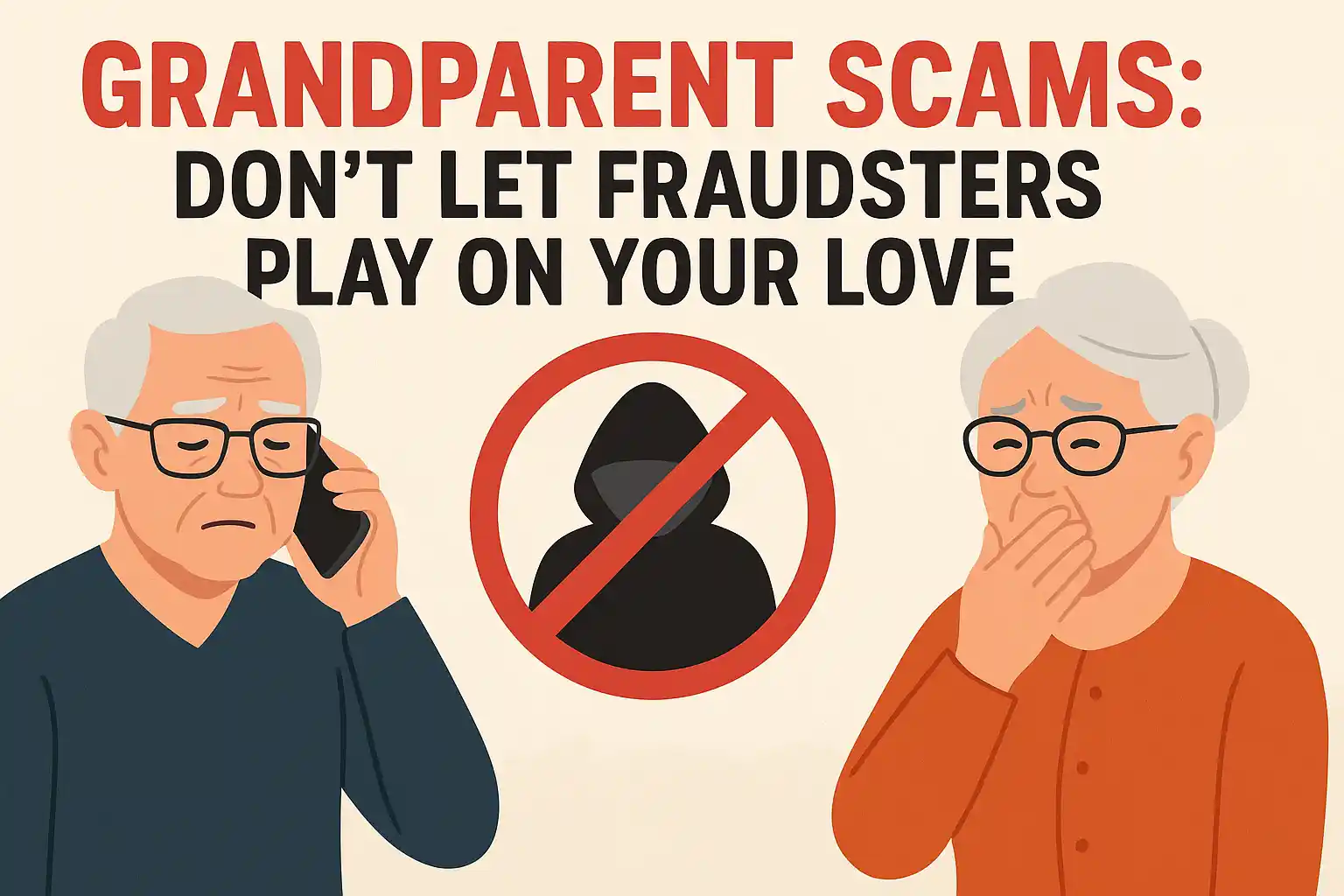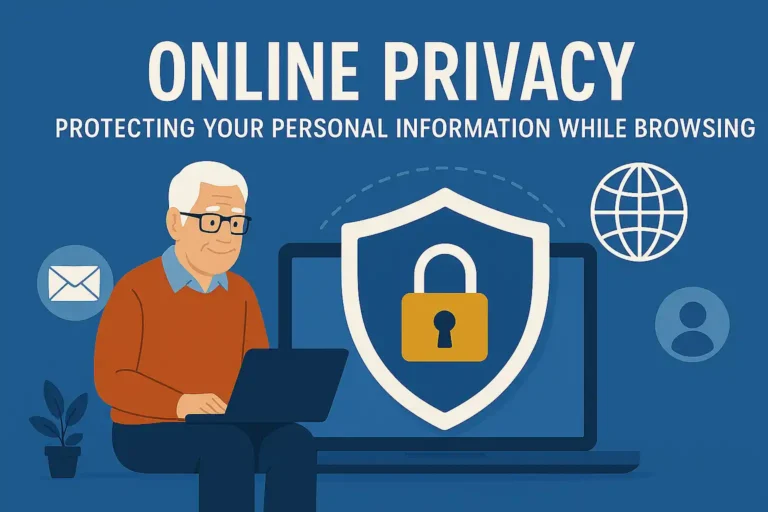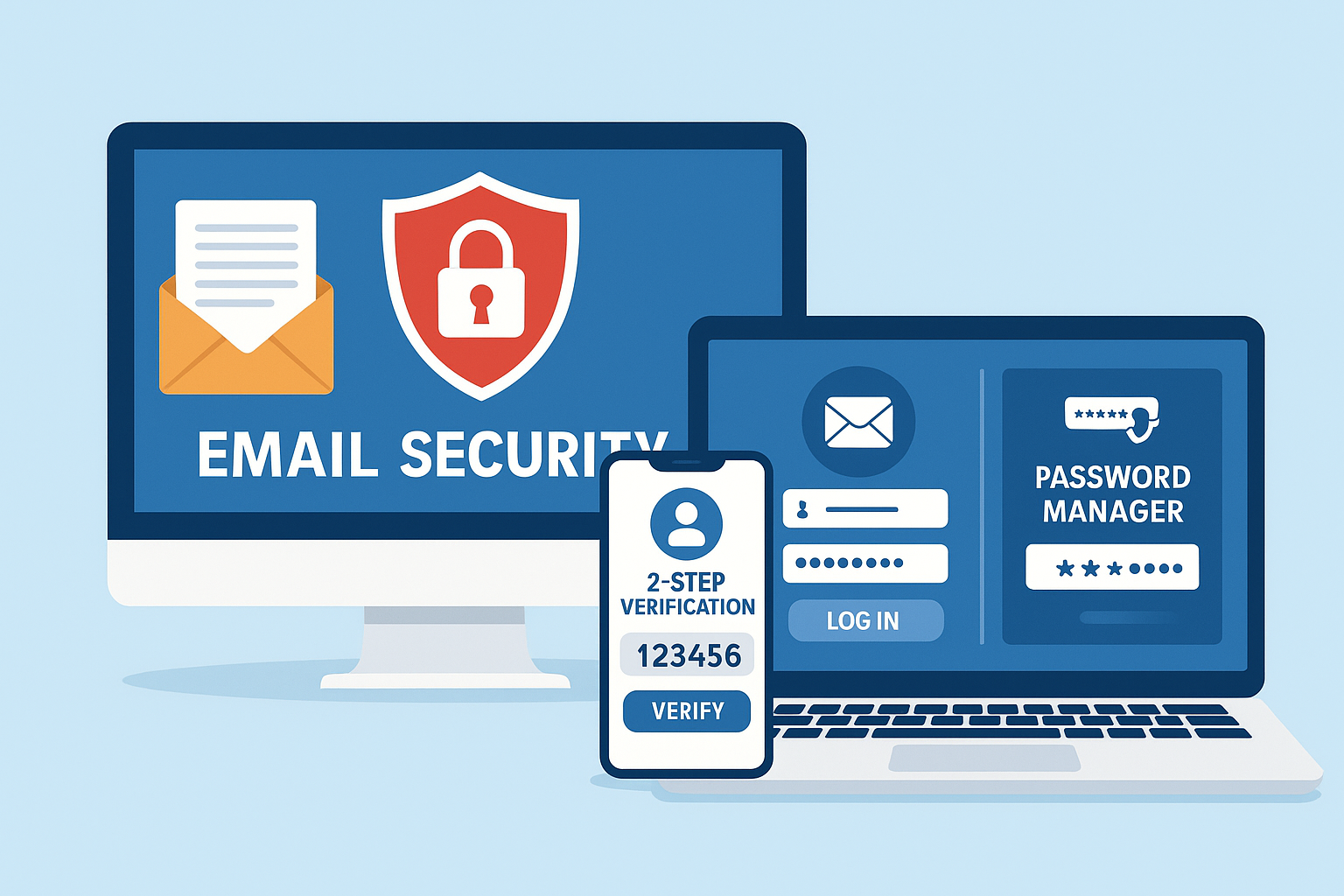Suggested Reading:
What Is a Grandparent Scam?
A grandparent scam occurs when a criminal calls, texts, or emails pretending to be your grandchild in urgent trouble. They claim they need money immediately—usually for bail, medical bills, or travel emergencies. The scammer creates panic, urgency, and secrecy to bypass your normal good judgment.
Why These Scams Work So Well:
- They exploit your protective instincts
- Create artificial urgency (“Don’t tell Mom and Dad!”)
- Use emotional manipulation when you’re caught off-guard
- Often happen when you’re alone and vulnerable to pressure
How the Scam Typically Unfolds
The Setup Call:
The phone rings, usually late evening or early morning. A distressed voice says, “Hi Grandma, it’s me, your grandson.” When you ask “Which grandson?” they say something like “Your favorite one” or “You know, Tommy.” Once you say a name, they’ve got their hook.
The Crisis:
Next comes the emergency: “I’m in jail,” “I was in a car accident,” “I’m stranded in another country.” They’ll sound different—claiming a broken nose, cold, or being emotional. This explains why their voice seems off.
The Money Request:
They need cash fast—usually $500 to $5,000. They can’t use their regular bank account due to the “emergency.” They’ll request gift cards, wire transfers, or cryptocurrency because these methods are nearly impossible to reverse.
The Secrecy Demand:
“Please don’t tell my parents—they’ll be so disappointed.” This isolation tactic prevents you from verifying the story with family members who would immediately spot the fraud.
Red Flags That Scream “Scam”
Voice and Communication Issues:
- They won’t answer direct questions about family details
- Voice sounds different with convenient excuses
- They avoid using specific names until you provide them
- Background noise seems artificial or inconsistent
Payment Red Flags:
- Requests for gift cards (iTunes, Google Play, Amazon)
- Wire transfers to unknown recipients
- Cryptocurrency payments
- Refusal to accept checks or bank transfers
- Extreme urgency about payment timing
Story Inconsistencies:
- Details don’t match what you know about your grandchild
- Location doesn’t make sense
- Legal or medical procedures seem off
- Multiple “helpers” get involved (fake lawyers, doctors, police)
Your Defense Strategy: Verify Before You Trust
The Golden Rule: Hang Up and Call Back
Never make financial decisions during the initial call. Tell them you need to “find your checkbook” or “talk to your spouse” and you’ll call them back. A real grandchild will understand. A scammer will pressure you to stay on the line.
Verification Steps:
- Call your grandchild’s regular phone number immediately
- Contact their parents directly
- Ask specific questions only your real grandchild would know
- Check social media for recent posts or activity
- Call other family members to verify the story
Test Questions That Work:
- “What’s your brother’s middle name?”
- “Where did we go for your birthday last year?”
- “What’s your mother’s maiden name?”
- “What did you call me when you were little?”
If You’re Being Targeted Right Now
During the Call:
- Stay calm and don’t reveal financial information
- Don’t confirm personal details they suggest
- Write down everything they tell you
- Note the phone number calling you
- Ask for their exact location and callback number
Immediate Actions:
- End the call politely but firmly
- Contact your real grandchild or their parents
- Don’t send money until you’ve verified the story
- Save any voicemails or text messages as evidence
Prevention: Building Your Shields
Family Communication:
- Establish a family code word for real emergencies
- Keep updated contact information for all family members
- Discuss this scam type with your grandchildren
- Create a family group chat for quick verification
Technology Settings:
- Enable caller ID on all phones
- Consider call-blocking apps for unknown numbers
- Set up two-factor authentication on financial accounts
- Keep social media profiles private with limited personal information
Financial Safeguards:
- Never give financial information to unexpected callers
- Avoid posting family details on social media
- Set up account alerts for unusual transactions
- Keep emergency contact numbers readily available
If You’ve Already Been Victimized
Immediate Steps:
- Contact your bank and credit card companies immediately
- Report the scam to local police
- File a complaint with the FBI’s Internet Crime Complaint Center
- Contact the gift card company if you purchased cards
- Document everything—calls, payments, conversations
Recovery Actions:
- Monitor all financial accounts closely
- Consider placing fraud alerts on your credit reports
- Change passwords on online accounts
- Be extra cautious about future unexpected calls
The Bottom Line
Grandparent scams succeed because they weaponize love against good judgment. Remember: legitimate emergencies rarely require immediate wire transfers or gift cards. Your real grandchild will understand if you need to verify their identity. Trust your instincts, if something feels wrong, it probably is.
The best defense is preparation. Discuss this with your family today, before the scammers call.
Helpful Resources to Get Started
Ready to put this advice into action? Here are direct links to the official resources and services that will help you implement strong defenses against grandparent scams today. These carefully selected resources are organized to match exactly where you might be in dealing with these scams, from prevention through recovery.
Official Verification Resources
When you need to verify whether a company legitimately contacted you, these official support pages provide the real phone numbers and contact methods you can trust. Having these bookmarked ahead of time removes the guesswork when you’re under pressure during a suspicious call.
Microsoft Official Support
Microsoft’s legitimate customer support contact page. Use this to verify any calls claiming to be from Microsoft technical support.
Apple Support
Apple’s official support portal where you can initiate legitimate contact with Apple representatives and verify any suspicious calls.
Google Contact Information
Google’s official contact directory for all their services. Essential for verifying any calls claiming to be from Google or Gmail support.
Immediate Reporting Resources
If you suspect you’re being targeted or have already fallen victim to a grandparent scam, these official government resources provide immediate pathways to report the crime and begin recovery. Acting quickly through these channels can sometimes help recover funds and always helps law enforcement track criminal patterns.
FBI Internet Crime Complaint Center
The FBI’s official portal for reporting internet-related crimes, including phone and email scams. This creates an official record that helps law enforcement investigate.
FTC Fraud Reporting
Report scams directly to the Federal Trade Commission, which uses these reports to investigate scam operations and warn other potential victims.
Canadian Anti-Fraud Centre
For Canadian residents, this is the official government resource for reporting fraud and getting recovery assistance from trained specialists.
Financial Protection and Recovery
These resources help you protect your financial accounts and begin recovery if money has already been sent to scammers. Understanding these options before you need them can save precious time when every minute counts in fraud recovery efforts.
Experian Fraud Center
Place fraud alerts on your credit reports and get free credit monitoring. Essential if you’ve provided personal information to scammers.
Gift Card Scam Recovery Guide
The FTC’s comprehensive guide on what to do if you’ve paid scammers with gift cards, including company-specific recovery contacts.
Western Union Fraud Protection
If you sent money through Western Union or similar services, this page explains your rights and recovery options for fraudulent transactions.
Educational and Prevention Resources
These authoritative sources provide ongoing education about evolving scam techniques and help you stay ahead of criminals who constantly adapt their methods. Regular learning from these trusted sources transforms you from a potential victim into an informed defender.
CISA Secure Our World
The U.S. government’s cybersecurity guidance for individuals and families, providing trusted advice on staying safe from all types of digital threats.
AARP Fraud Protection
Comprehensive scam awareness and prevention resources specifically designed for older adults and their families.
Stay Safe Online
National cybersecurity awareness resources and tips for personal digital safety, regularly updated with the latest threat information.
Grandparent Scam Verification Timeline
A step-by-step guide to protect yourself from fraud.
Receive an Unexpected Call
You get a distressing call from someone claiming to be your grandchild who needs money urgently.
Ask Specific, Personal Questions
Ask things only your real grandchild would know, like a pet’s name, a shared memory, or their mother’s birthday. Vague answers are a red flag.
End the Call & Verify Independently
Do not rely on the caller. Hang up and call your grandchild’s known phone number directly.
Verify with Other Family
Call the grandchild’s parents or other close relatives to confirm the story. Scammers will often say “don’t tell anyone.”
Final Decision
After verifying, here are the possible outcomes:
Scam Confirmed
If the story is not true, you’ve identified a scam. Do not send money or personal information. Report the incident to the police or a fraud reporting agency.
Verified Emergency
If trusted family members confirm the situation is real, only then should you consider the best and safest way to provide help.








